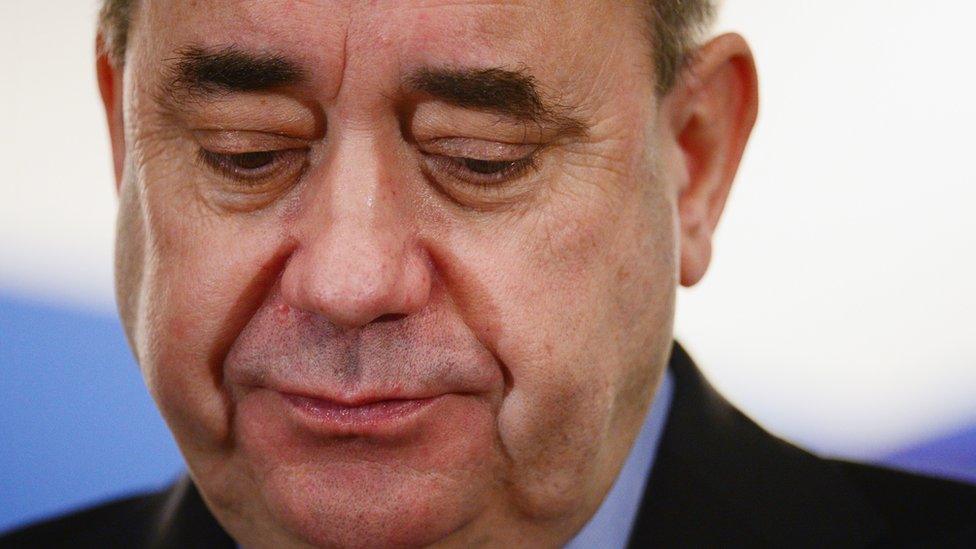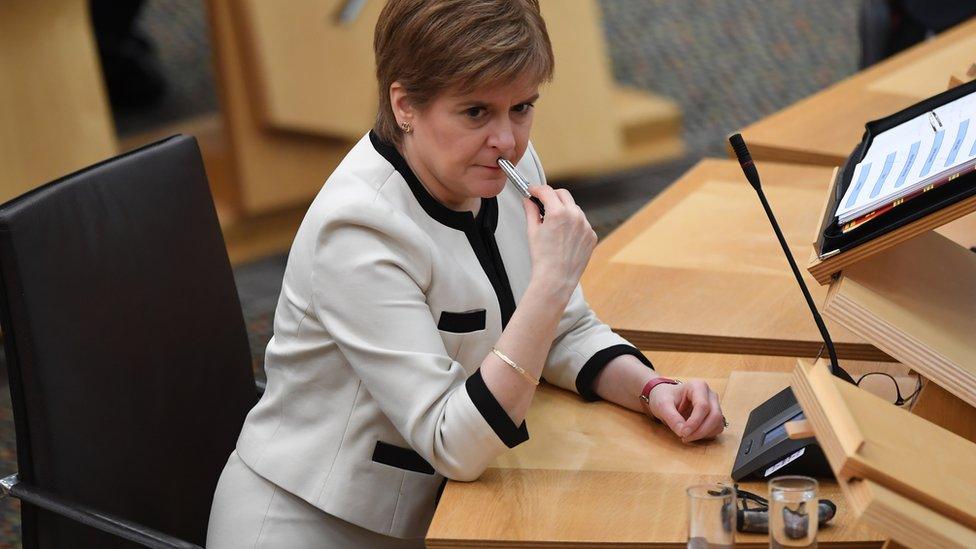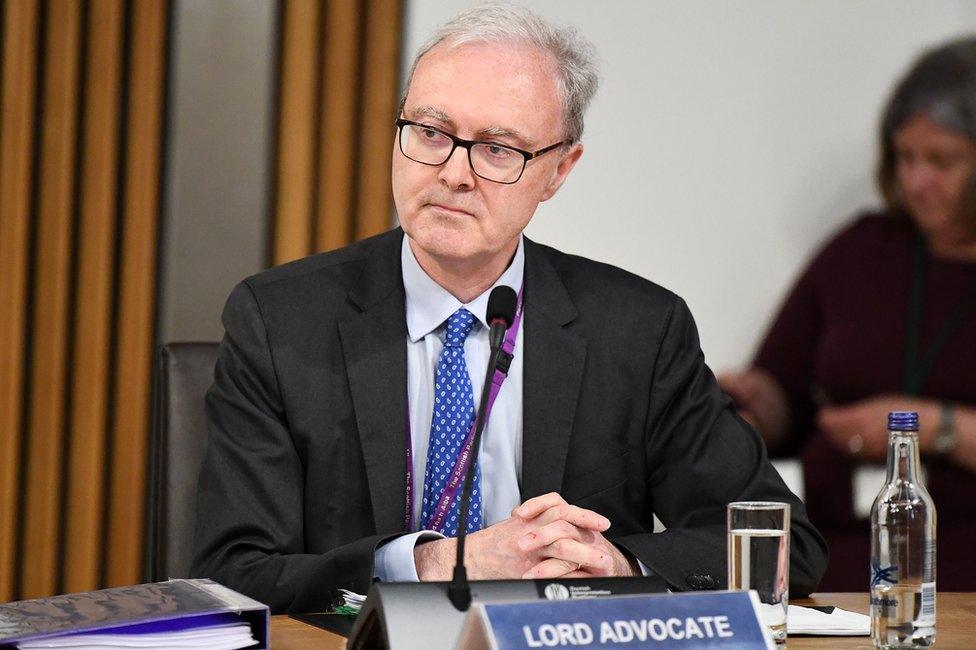The Alex Salmond inquiry and the political stink at Holyrood
- Published

Alex Salmond accuses some of the most powerful people in the country of plotting to remove him from public life and send him to jail
Alex Salmond's evidence has caused the biggest political stink in Holyrood's short history and no inquiry currently under way is fully equipped to clear the air.
Whether you think his conspiracy claims are highly believable or little more than bluff and bluster they could hardly be more serious.
In his evidence to the Scottish Parliament, he accuses some of the most powerful people in the country of plotting to remove him from public life and send him to jail.
He points the finger at key figures in the Scottish government and the SNP - both of which he used to lead - and suggests they have been aided and abetted by Scotland's prosecution service, the Crown Office.
His successor as first minister, Nicola Sturgeon, insists Mr Salmond has not produced a "shred of evidence" to back up his allegations. Unless he can do so, she suggests, he should stop making them.

Nicola Sturgeon insists Mr Salmond has not produced a "shred of evidence" to back up his allegations
Her plea is unlikely to be heeded but even the fact she made it suggests the Scottish government is acutely aware of how potentially damaging all this is.
His response is that key evidence is being improperly withheld by the Crown Office which insists it acts independently and in the public interest at all times. Mr Salmond considers it "not fit for purpose" under its current leadership.
Remember these are not the claims of an anonymous blogger. They are coming from Scotland's longest serving first minister, someone who is still entitled to style himself as the Right Honourable Alex Salmond.
That he behaved with less than honour towards some women when he was in power was conceded by his QC at his sexual assault trial, where he was acquitted of all 13 charges.
His critics think his claims of conspiracy, implicating those who testified against him, are dishonourable too. One of his accusers said it was "utterly absurd" to suggest nine women would have lied under oath.
Of course, Mr Salmond is not without his supporters. These include his former justice secretary, Kenny MacAskill who told me this week there needs to be a judge-led inquiry into this sorry business.
That call has now been endorsed by the Scottish Conservative's Holyrood leader, Ruth Davidson.
With Scottish Parliament elections due in a couple of months, it is not surprising that opposition parties want to prolong the agony for Nicola Sturgeon, even if that means in effect doing Alex Salmond's bidding.
However, Ms Sturgeon's supporters in the SNP and elsewhere cannot simply wish Mr Salmond's allegations away.
It is clear that neither of the existing inquiries will resolve all the issues.
The Holyrood committee's job is principally to establish how and why the Scottish government messed up its investigation into the original harassment complaints against Mr Salmond.
It is also looking at whether or not Ms Sturgeon complied with the code of conduct for ministers - a question that will be more independently addressed by the first minister's adviser on the code, James Hamilton.
No-one is formally examining Mr Salmond's claims of a stitch-up.
No-one is reviewing Holyrood's capacity to hold the Scottish government to account.
No-one's been asked to report on the role of the Crown Office and whether or not it is sustainable for it to be run by someone who is both head of the prosecution service, a minister in the Scottish government and its principal legal adviser.

Lord Advocate James Wolffe is the head of the Crown Office as well as the Scottish government's principal legal adviser
That difficult dual role is carried out by Lord Advocate James Wolffe who, it should be said, did not take a decision-making role in the prosecution of Mr Salmond.
The point is there will be outstanding issues. If not a judge-led inquiry, the Scottish government needs to find another way of reassuring the public that it is not running the rotten regime Mr Salmond describes.
Ms Sturgeon may not think that fair. The first minister has already said it is for Mr Salmond to prove his claims. But without a fresh approach from the government, those claims could leave a lingering stench.